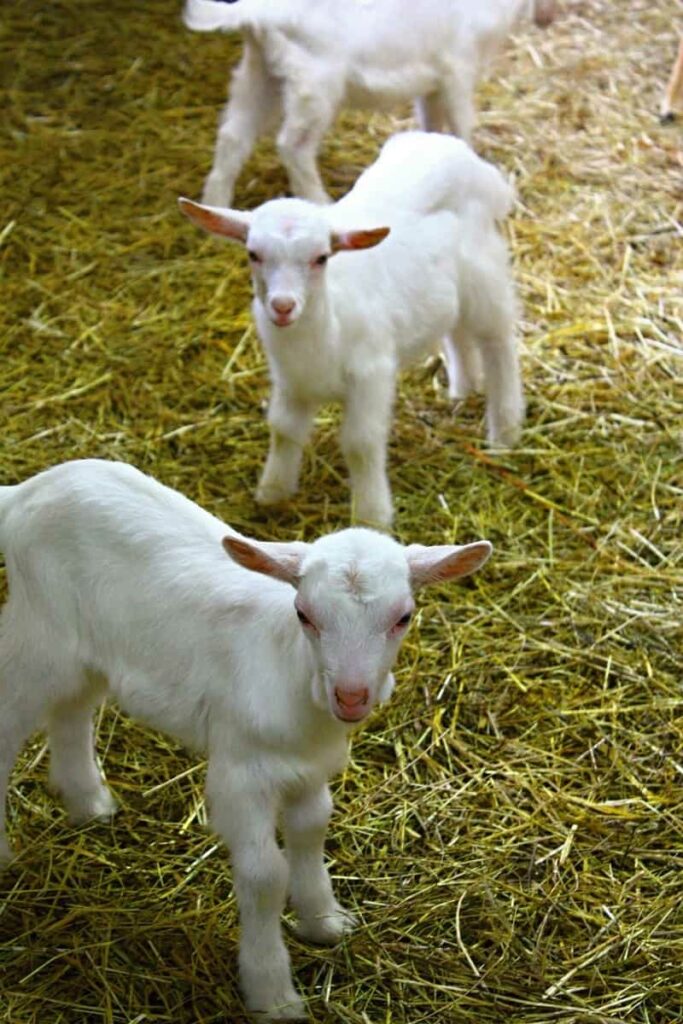Goats are one of the most versatile animals on the planet and are perfect for farming in Brazil. Goat farming is a popular activity in Brazil, and for a good reason, the country has an incredible variety of climates that make for perfect goat-raising conditions. Not only are these animals hardy and resourceful, but they also provide valuable milk and meat products.
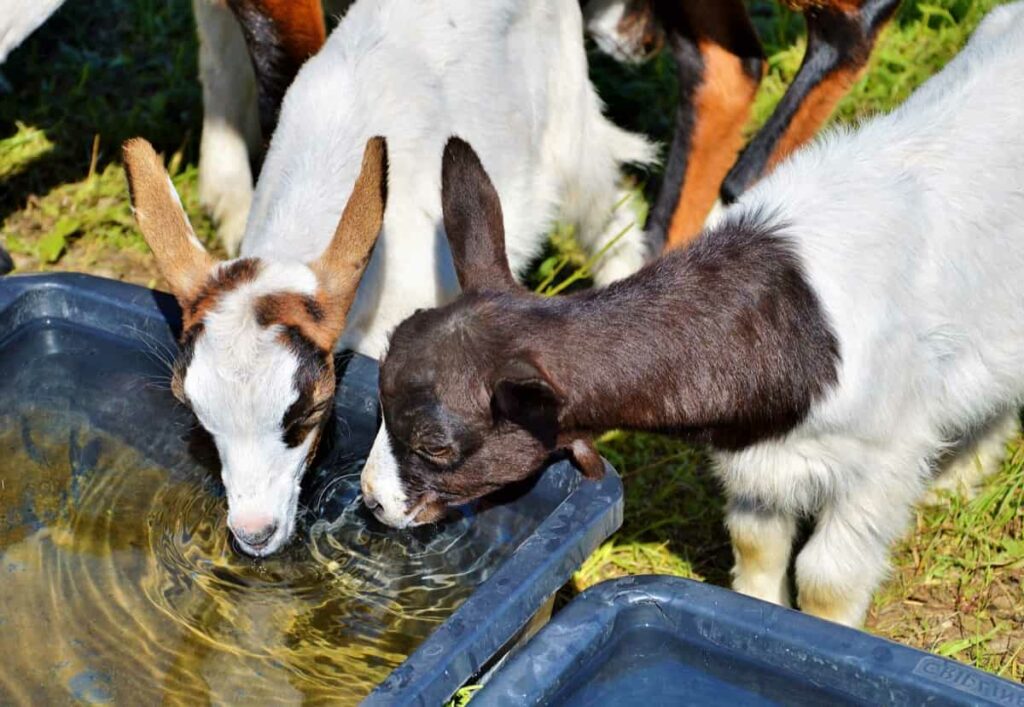
How to start goat farming in Brazil
Is goat farming profitable in Brazil?
In Brazil, goat farming is a lucrative and sustainable agricultural enterprise. There are many reasons for this:
- Firstly, the country has a large population of people who are accustomed to eating goat meat. This means that there is a demand for goat products in the market.
- Second, Brazil has a large land area that can be used for goat farming. This is because goats require less space than other livestock and can be raised in areas that are not ideal for cattle or pigs.
- Third, Brazilian farmers have learned how to breed and raise goats properly. This means they produce high-quality meat goats resistant to diseases and can yield large quantities of milk.
- Fourth, Brazilian farmers have developed a marketing strategy focusing on selling their products directly to consumers. This allows them to earn higher profits than farms that sell their goat products to processors or distributors.
In case you missed it: Indigenous Veld Goat Farming in Africa: How to Start, Business Plan for Rasing to Care
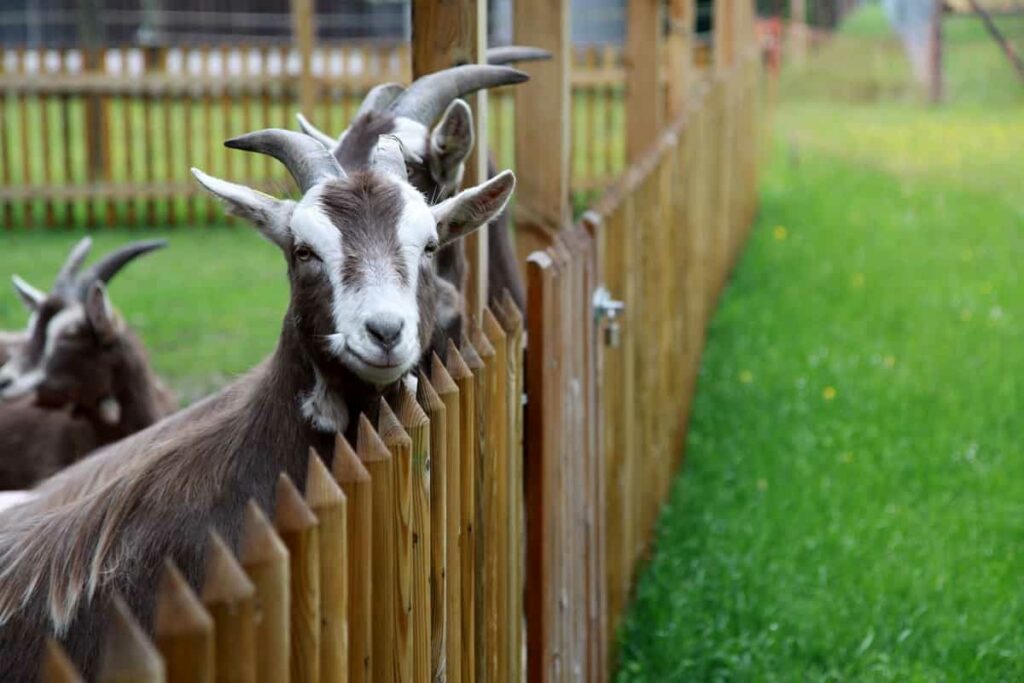
Goat farming importance in Brazil
- Brazil is considered one of the best places to raise goats for their meat. There are many reasons, but the main reason is that the country has a great climate and plenty of grass. In addition, Brazil has a large population of people who are accustomed to eating goat meat, so there is already a market for it.
- Since the beginning of agriculture in Brazil, goat farming has been an essential part of the country’s agricultural landscape. Goats can adapt quickly to different environmental conditions, making them versatile livestock species.
- The main reasons for the popularity of goat farming in Brazil are its low production costs and ability to adapt to different climatic conditions. Goats are also known for their hardiness and resistance to diseases and pests. In addition, their milk is high in quality and can be used for various food products.
- One of the most important challenges facing Brazilian goat farmers is the lack of land suitable for cultivation. This problem is compounded by goats requiring relatively large areas to graze, which limits their use as livestock species on smaller farms. Many Brazilian farmers want to expand their operations into other agricultural sectors, such as agriculture production crops.
- Goats are, however, an essential part of Brazilian agriculture, providing milk, meat, fiber, and transportation services. They also help control pests and diseases that can damage crops.
- Many Brazilian farmers rely on goats to help them improve their yields even when no rain is available. This is because goats will eat any vegetation that grows near the crops, which helps to keep down populations of insects and rodents that may feast on the plants. The importance of goats to Brazilian agriculture has increased the demand for these animals worldwide. Indeed, Brazil now exports more goat meat than any other country in the world
Are there goats in Brazil?
The Northeast Region of Brazil has 90% of the 10 million goats present in the country. Goat farming in Brazil is a booming industry, and are many reasons. For starters, the country has abundant land well-suited for raising goats. Also, Brazilians are passionate about goat meat, which is healthier. And finally, Brazilian farmers have learned how to raise goats humanely and efficiently, which makes them top producers in the global market.
Goat breeds available in Brazil
- Only Moxotó and Canindé are officially recognized as a breed by the Brazilian Agricultural Ministry. Other less important goat types include Marota (totally white), Serrana Azul, Repartida, Graúna, Nambi, and Gurguéia (chamois).
- The local Brazilian goat breeds, Moxotó, Canindé, Serrana Azul, Marota, Repartida, and Graúna, are animals of multiple functions and adapted to climatic conditions and smallholder farming systems.
- Brazil has the world’s largest number of goat farms, with nearly 1 million registered farms raising an estimated 22 million goats.
Feeding your goats in Brazil
When raising livestock, Brazilian farmers have a wide variety of choices. However, Brazilians have also been successful in raising goats for many years. Goats provide excellent milk and meat products for the local market and are also efficient at clearing away dense brush and trees from agricultural land. Plus, goats are relatively easy to care for compared to other livestock.
In case you missed it: How to Make Corn Silage: Production and Management Steps for Goats, Sheep, Cows, Pigs, and Cattle
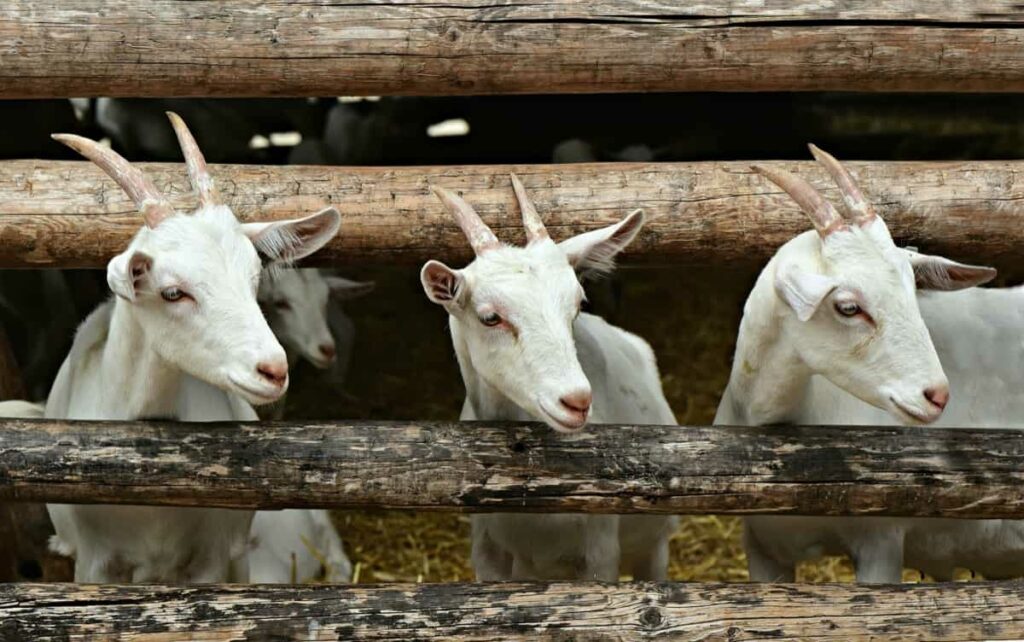
In Brazil, goat feeding management is of the utmost importance, given that the animals are used for milk production. To ensure a high level of productivity from these animals, it is important to provide them with a balanced diet that includes hay and fresh fruits and vegetables. In addition, goats should be housed in pens with good ventilation and access to fresh water.
Since goats require a lot of space to graze, it is important to know the size of your farm before starting this type of farming activity. Also, keep in mind that goats need at least six hours of sunlight per day to produce their best milk. Additionally, if possible, try to select breeds of goats that are resistant to disease.
Tips for feeding your goats
- Provide ample hay and straw feeds at all times. Goats need plenty of fiber to stay healthy, so ensure they get the nutrients they need with their feed.
- Make sure your goat has access to fresh water. They’ll drink more when they’re thirsty, so keep a water supply close by.
- Beware of predators — especially dogs — around your goats during the early stages of their development.
Goat rearing business in Brazil
There are several reasons why goat farming is becoming increasingly popular in Brazil. For one, goats are well-adapted to the country’s climate and terrain. They also provide a consistent source of milk, which can be sold at local markets or exported overseas. Additionally, goats are low-maintenance animals that require minimal care once they’re set up on a farm.
To start a goat farming business in Brazil, prospective entrepreneurs must acquire land suitable for the animals and some shelter. They’ll also need to purchase feed, water for the goats, fencing, and other equipment necessary for their operation. Once all these items have been assembled, farmers can begin raising their goats and selling their milk online or at local markets.
How to start a goat farm in Brazil
In Brazil, goat farming is a popular agricultural activity. There are many advantages to raising goats in this country, including the climate and land availability. Goat farming can be a profitable venture as long as you plan correctly. Here are some tips for starting a goat farm in Brazil:
- Choose the right location – Goats require access to plenty of fresh, uncontaminated grasslands. They won’t thrive in densely populated areas or on heavily cultivated land. Make sure your chosen location has ample room for your herd of goats to roam and graze.
- Build the right infrastructure – You’ll need fencing to keep your goats contained, barns and sheds to house and feed them, water sources, and adequate shelter for them in bad weather. You’ll need to purchase supplementary feed for them (goat pellets) and special goat breeds better suited for Brazilian climate conditions.
- Get started early – It takes time to build up a successful goat farm in Brazil – start planning now. To get started quickly, you could want to enlist the help of an experienced goat farmer who can provide you with advice and support during the early stages of your venture.
In case you missed it: Goat Farming Loan in India: How to Get, Interest Rate, Documents for Banks, Mudra, and NABARD
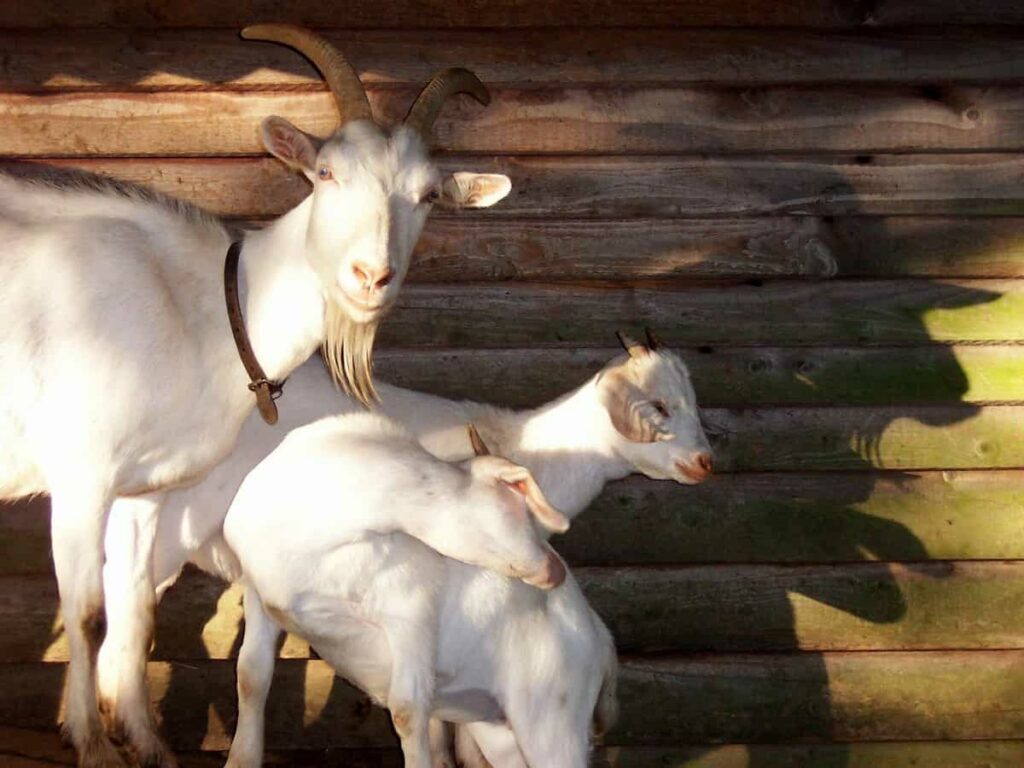
Goat farming for beginners in Brazil
- If you’re looking to start goat farming in Brazil, there are many things you need to keep in mind.
- First and foremost, be sure to research the different types of climates that Brazil is found in.
- Secondly, ensure the right infrastructure – including fences, water sources, and ventilation – before you start goats farming.
- Always remember to take care of your goats – providing them with fresh feed and water, veterinary care when needed, and plenty of hay.
Managing your goat farm in Brazil
Brazil is one of the top goat-producing countries in the world, with over 20 million animals living on small farms throughout the country. Goat farming is a popular and sustainable agricultural activity in Brazil, providing ample milk, meat, and fiber for local consumption and export. You’ll need several things to manage your goat farm in Brazil: land, goats, fencing, water sources, and feed.
Buying or renting land is essential for starting a goat farm in Brazil; you’ll need at least 400 hectares to produce enough milk. Goats require plenty of space to roam and graze, so make sure to buy an area large enough for them to roam and access fresh water and feed. You’ll also need fencing – use panels or wire mesh – to keep goats from escaping and other livestock from attacking them.
Water sources will be important on your goat farm in Brazil; make sure to locate it near grassy areas where goats can drink. Also, please provide them with hay barns or other suitable shelters where they can rest during cold weather months. Finally, provide feed – either hay or pellets – as needed; goats will eat a lot of feed when raising kids.
Goat farming types in Brazil
There are many types of goat farming in Brazil, from small family operations to large commercial outfits. Generally, there are three main types of goat farming in Brazil: extensive, semi-intensive, and intensive.
- Extensive goat farming is the most common type in Brazil and is also the most traditional. It involves keeping a herd of around 100 goats on a large land with plenty of pasture. These farmers sell their goats raw (meat only) or processed into products like sausages, cheese, and soap.
- Semi-intensive goat farming is a more modern approach that has become popular recently. Instead of keeping a large herd, semi-intensive farmers keep between 10 and 50 goats on smaller pieces of land that they rotate through to provide them with enough pasture.
- Intensive goat farming is the newest type of goat farming in Brazil, growing rapidly. Intensive goats are kept on very small plots of land (usually no more than 1 acre), giving them continuous access to fresh pasture. They are raised for their meat alone rather than sold as whole animals or products. This type of goat farming is ideal for people who want to raise their food without dealing with the logistical challenges of raising a large herd.
In case you missed it: How to Make Goat Manure Compost: A Step-by-Step Guide to Using in Your Garden/Farm
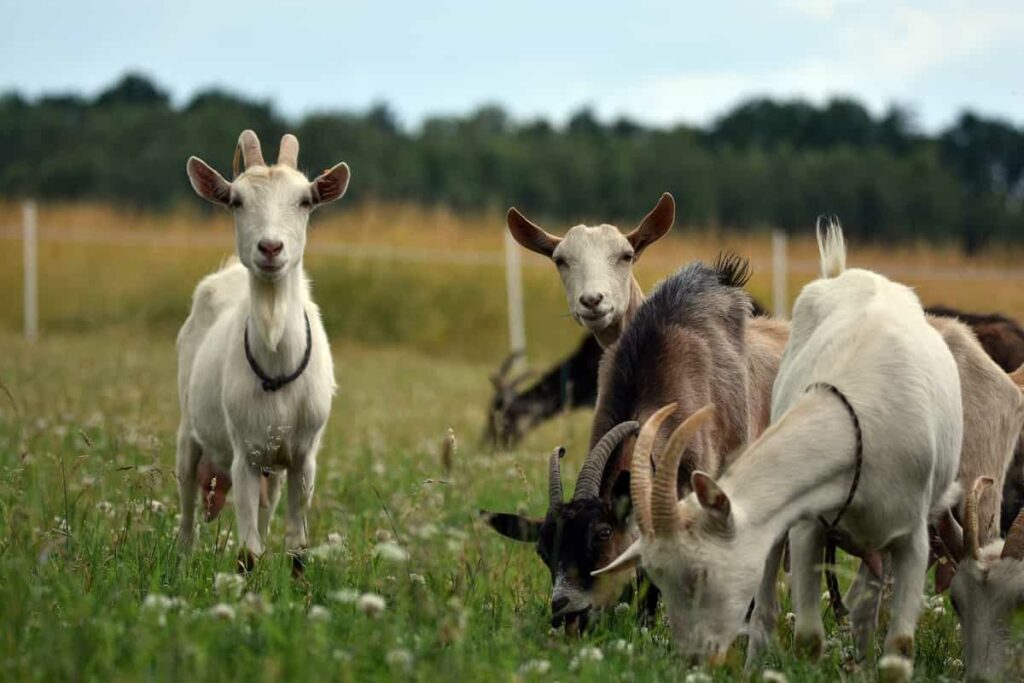
Small-scale goat farming in Brazil
If you’re interested in starting a small-scale goat farm in Brazil, there are a few things you’ll need to consider. First of all, you’ll need to find the right location. Goats require plenty of space to roam and graze, so make sure you have enough land available before getting started. Secondly, you’ll need to buy or lease some goats.
It’s important to find animals that are healthy and well-nourished so that they will produce quality milk and meat. Finally, once you’ve set up your farm, it’s important to keep an eye on the pasture, so the goats have enough fodder and resources to eat.
Commercial goat farming in Brazil
Goat farming is a popular agricultural activity in Brazil, where more than 260,000 goats are kept. The country has a long history of goat farming, dating back to the colonial period. Today, commercial goat farming in Brazil is an important industry, with exports for more than half of the total revenue. Goats are raised on small farms throughout the country. They are used for their milk and meat products, which are exported to different parts of the world. Commercial goat farmers raise goats for their milk production primarily.
The milk is sold as fresh or frozen products. Meat goats are also raised for their meat products. These products are mainly sold to restaurants and grocery stores. Commercial goat farming in Brazil is an important industry, with exports accounting for more than half of the total revenue. The country has a long history of goat farming, dating back to the colonial period. Today, commercial goat farming in Brazil is an important industry, with exports for more than half of the total revenue.
Steps to start goat farming business in Brazil
If you are thinking of starting a goat farming business in Brazil, there are different things you need to know first.
- First, it is important to find an area suitable for your farm. This includes factors like climate, soil quality, and rainfall.
- Second, you must purchase goats to begin a goat-farming business in Brazil. There are many different breeds of goats available, so it is important to research the best suited for your location and requirements.
- Third, you will need to build shelters for your goats and install fencing to protect them from predators and other animals. You should also provide food and water for your goats daily, as well as fresh hay and straw for them to bed in during the night.
- Fourth, you will need to get started with breeding goats if you want to have a successful goat farming business in Brazil. Breeding goats is an investment, so it is important to do your research before starting this process.
Goat farming areas in Brazil
Today, Brazil is one of the top goat-producing countries in the world, with a herd of almost two million goats. The main regions where goat farming is practiced are the states of Minas Gerais, Rio de Janeiro, Espírito Santo, and São Paulo.
In case you missed it: How to Start Goat and Sheep Farming in United Arab Emirates (UAE): A Stall Feed Guide for Beginners
Goat farming profits in Brazil
In Brazil, goat farming is a popular agricultural activity that generates profits. The Brazilian goat industry is worth around $2 billion annually. It is one of the most profitable sectors of Brazilian agriculture. Goats are well-suited for the tropical climate in Brazil, and they can thrive on small plots of land.
Goat farming problems in Brazil
There are a few problems that go along with goat farming in Brazil. The first problem is that not enough people are interested in raising goats, so prices for animals and feed tend to be low. Secondly, rainforests are being destroyed at an alarming rate, which means that many of the natural resources that go into raising goats – such as woodlands and pastureland – are also disappearing. And finally, there is the issue of disease.
Goats are susceptible to several diseases, some of which can be devastating if not dealt with quickly. The Brazilian goat farming industry is experiencing some challenges, which are causing a decrease in milk and meat production. The main challenges include the following:
- A lack of available land for goat farming.
- A high rate of goats being re-homed due to health problems or unsatisfactory performance.
- The high cost of inputs, such as feed and water.
- Poor husbandry practices, including overfeeding and neglecting proper nutrition and hygiene among goats.
Conclusion
Goat farming is an important part of the Brazilian agricultural landscape. The country has a long history of raising goats for its meat and skin products. However, most Brazilian farmers still raise goats for milk and fiber production. Goats can digest grass more effectively than cows and produce three times as much milk. This means there is a lot of potential for this goat farm growth in the Brazilian economy.
- Economical Aquaculture: A Guide to Low-Budget Fish Farming
- 15 Common Planting Errors That Can Doom Your Fruit Trees
- How to Make Houseplants Bushy: Effective Tips and Ideas
- Innovative Strategies for Boosting Coconut Pollination and Yield
- Pollination Strategies for Maximum Pumpkin Yield
- The Complete Guide to Chicken Fattening: Strategies for Maximum Growth
- Natural Solutions for Tulip Problems: 100% Effective Remedies for Leaf and Bulb-Related Issues
- Revolutionizing Citrus Preservation: Towards a Healthier, Greener Future
- Natural Solutions for Peony Leaf and Flower Problems: 100% Effective Remedies
- Maximizing Profits with Avocado Contract Farming in India: A Comprehensive Guide
- Natural Solutions for Hydrangea Problems: 100% Effective Remedies for Leaf and Flowers
- The Ultimate Guide to Choosing the Perfect Foliage Friend: Bringing Life Indoors
- From Sunlight to Sustainability: 15 Ways to Use Solar Technology in Agriculture
- The Ultimate Guide to Dong Tao Chicken: Exploring from History to Raising
- The Eco-Friendly Makeover: How to Convert Your Unused Swimming Pool into a Fish Pond
- Mastering the Art of Delaware Chicken Farming: Essentials for Healthy Backyard Flocks
- 20 Best Homemade Fertilizers for Money Plant: DIY Recipes and Application Methods
- How to Craft a Comprehensive Free-Range Chicken Farming Business Plan
- Brighten Your Flock: Raising Easter Egger Chickens for Beauty and Bounty
- How to Optimize Your Poultry Egg Farm Business Plan with These Strategies
- Subsidy for Spirulina Cultivation: How Indian Government Schemes Encouraging Spirulina Farmers
- Ultimate Guide to Raising Dominique Chickens: Breeding, Feeding, Egg-Production, and Care
- Mastering the Art of Raising Jersey Giant Chickens: Care, Feeding, and More
- Ultimate Guide to Raising Legbar Chickens: Breeding, Farming Practices, Diet, Egg-Production
- How to Raise Welsummer Chickens: A Comprehensive Guide for Beginners
- How to Protect Indoor Plants in Winter: A Comprehensive Guide
- Ultimate Guide to Grow Bag Gardening: Tips, Tricks, and Planting Ideas for Urban Gardeners
- Guide to Lotus Cultivation: How to Propagate, Plant, Grow, Care, Cost, and Profit
- Agriculture Drone Subsidy Scheme: Government Kisan Subsidy, License, and How to Apply Online
- Ultimate Guide to Raising Araucana Chickens: Breed Profile, Farming Economics, Diet, and Care
- Bringing Hydroponics to Classroom: Importance, Benefits of Learning for School Students
- Ultimate Guide to Raising Polish Chickens: Breed Profile, Farming Economics, Diet, and Care
- Ultimate Guide to Raising Australorp Chickens: Profile, Farming Economics, Egg Production, Diet, and Care
- Silkie Chicken Farming: Raising Practices, Varieties, Egg Production, Diet, and Care
- Sussex Chicken Farming: Raising Practices, Varieties, Egg Production, Diet and Care
- Homemade Feed Formulations for Livestock: Discover Cost-effective Starter to Finisher Feed Recipes
